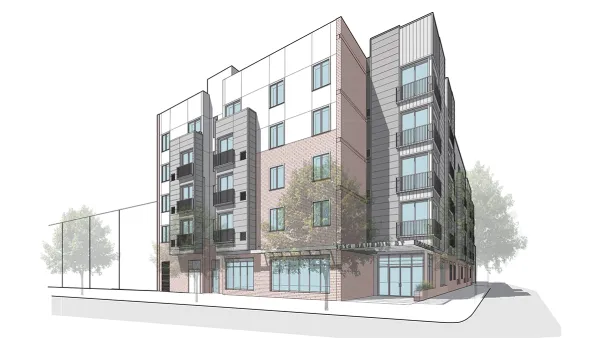New regulations prohibit cities from enacting stricter efficiency standards in new buildings.

The International Code Council, a private consortium that controls building code regulations for most of the United States and Latin America, has voted to reduce the power of cities and local jurisdictions over building efficiency requirements. "The decision came more than a year after the construction and gas industry groups that wield heavy influence at the International Code Council objected to aggressive new energy codes for which government officials voted," reports Alexander C. Kaufman in the Huffington Post.
The new system places building codes governing energy systems and insulation "under a separate 'standards' process that, despite soliciting input from local officials, will give industry more control over the outcome." While the ICC promises that government officials will still have "the strongest voice on the committee," city officials worry the move only helps private companies maximize profit and "warned that it could encourage governments to shift away from using the ICC’s code." Organizations including the American Institute of Architects criticized the new plan as "a step backwards for climate action," while industry groups "cheered" the announcement.
Local governments, many of which don't have their own building code authority, have been signing on to ICC regulations as a way to move toward more efficient building codes. "Buildings use roughly 40% of all energy produced in the U.S. for heating, power and cooking appliances, and generate a proportional share of the country’s planet-heating gases." City leaders and Biden administration officials worry the changes could "likely derail and slow" the progress made on energy efficiency in new buildings. "Kelly Speakes-Backman, the Energy Department’s acting assistant secretary for energy efficiency and renewable energy, asked the code-making group to 'not proceed with these proposed changes until these questions and concerns can be adequately addressed.'"
FULL STORY: After Championing Greener Building Codes, Local Governments Lose Right To Vote

Analysis: Cybertruck Fatality Rate Far Exceeds That of Ford Pinto
The Tesla Cybertruck was recalled seven times last year.

National Parks Layoffs Will Cause Communities to Lose Billions
Thousands of essential park workers were laid off this week, just before the busy spring break season.

Retro-silient?: America’s First “Eco-burb,” The Woodlands Turns 50
A master-planned community north of Houston offers lessons on green infrastructure and resilient design, but falls short of its founder’s lofty affordability and walkability goals.

Test News Post 1
This is a summary

Analysis: Cybertruck Fatality Rate Far Exceeds That of Ford Pinto
The Tesla Cybertruck was recalled seven times last year.

Test News Headline 46
Test for the image on the front page.
Urban Design for Planners 1: Software Tools
This six-course series explores essential urban design concepts using open source software and equips planners with the tools they need to participate fully in the urban design process.
Planning for Universal Design
Learn the tools for implementing Universal Design in planning regulations.
EMC Planning Group, Inc.
Planetizen
Planetizen
Mpact (formerly Rail~Volution)
Great Falls Development Authority, Inc.
HUDs Office of Policy Development and Research
NYU Wagner Graduate School of Public Service




























